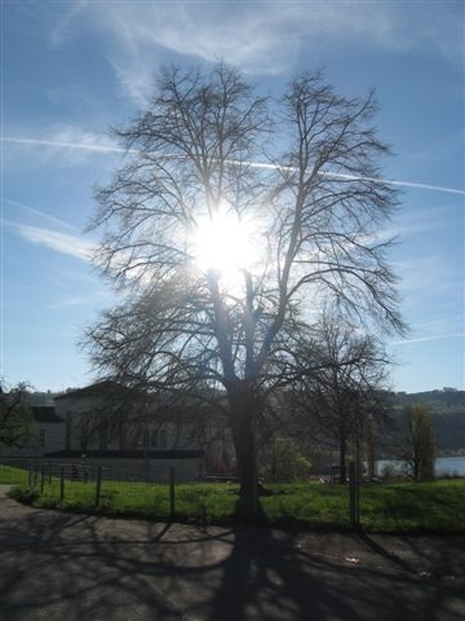"The realization of the aliveness of the non-human is the crack in the paradigm, a shift from understanding nature as passive, unfeeling, and mechanical, to seeing the non-human all around us as aware ..."
Luanne Armstrong
"Animals, plants, and even fungi are more 'aware' than people previously thought, which raises questions about how that might change our relationships with other living beings." So says the latest newsletter of the Global Oneness Project which aims "to bring the world to our classrooms". The website inspires students to rethink their relationship to the world through free distribution of stories and educational materials. The latest lesson plan is about 'The Consciousness of Nature', where it is been asked:
"What happens when we engage with the natural world?" Acclaimed author Luanne Armstrong explores this question in her article, “Small Talk: Life on a Farm.” I got deeply touched, by what Luanne writes: "I walk on the land every day and never get bored. There is always something new to see and learn." This is also my own experiences since I live in the Lake Valley of Lucerne at the Lake Baldegg. Beauty everywhere. And any kind of weather or season brings its own amazing presents.
CULTURAL ASSUMPTION
Luanne continues: "The assumption that plants and animals have no feelings was made by science, hundreds of years ago, for convenience. It's actually a cultural assumption. It has no scientific basis. This assumption makes it easier to experiment on animals, easier to exploit them, hunt them, or use them as a "resource." This kind of thinking has resulted in the snarled mix of contradictions, beliefs, sentimentality, superiority, and fear with which humans continue to regard and portray the non-human world.
But current research that examines plants and animals for 'intelligence' finds it in many new and surprising ways. Such research is finding that certain animals and plants are far more 'intelligent' than anyone had ever even guessed. However, intelligence is the wrong word. Consciousness is the wrong word. But science doesn't have the right words. We have no language because plants and animals are not like humans. ..."
DAILY EXPERIENCE
I don't care so much about the right words, neither to talk about the latest scientific findings nor when I talk to cows, birds, ants or trees. The former because it is needless to argue theoratically about something that is validated already by my daily experience and the latter because two words are perfectly good: "Hey, you!"
Luanne Armstrong carries on about new discoveries in science, which "... are saying look, plants and animals are different from what science previously assumed, which is different from what religions and culture have previously taught. The standard of 'intelligence' or 'culture' still remains a comparison with humans as ultimately superior in these areas.
NEW ASSUMPTIONS
Why not do research in the opposite direction? Making comparisons asks the wrong questions. Why not make the assumption that animals and plants have something; what do we call it? Aliveness? Awareness? Conscious existence? Proceed from there. Why constantly ask animals and plants, who can't speak our languages and who have no legal standing within our courts, to prove their intelligence, their consciousness, their equality with humans? After all, do animals acknowledge our superiority? Does the grass bow before us?"
Luanne Armstrong’s observations supports the newest research. Read her poignantly article: Life on a Farm | Learn more about the Lesson Plan of The Global Oneness Project: The Consciousness of Nature
From time to time I write an english blogpost on the oralab blog. Find more of them in the sidebar on the right: Themen: english posts

 RSS Feed
RSS Feed
